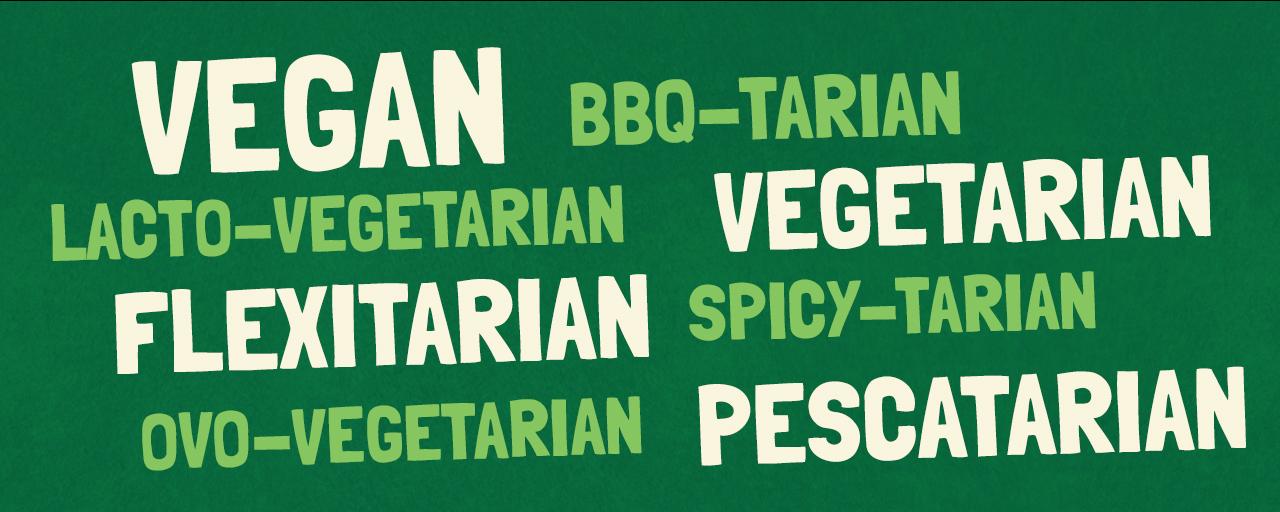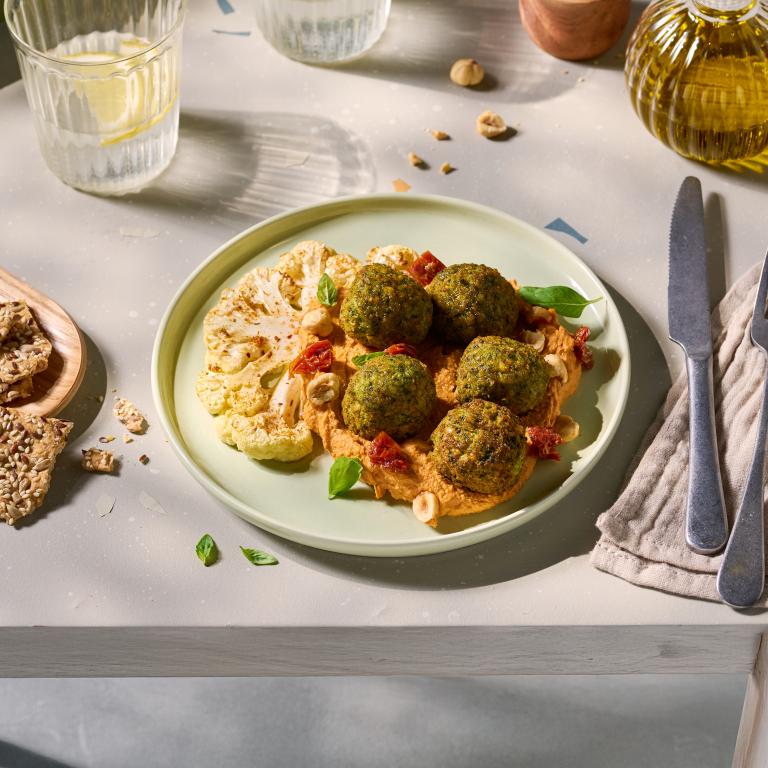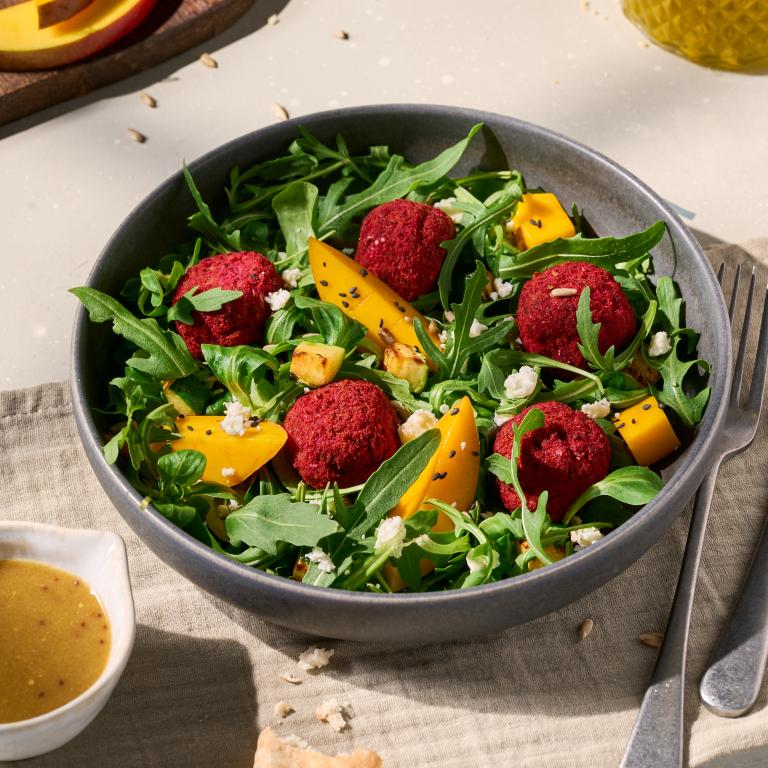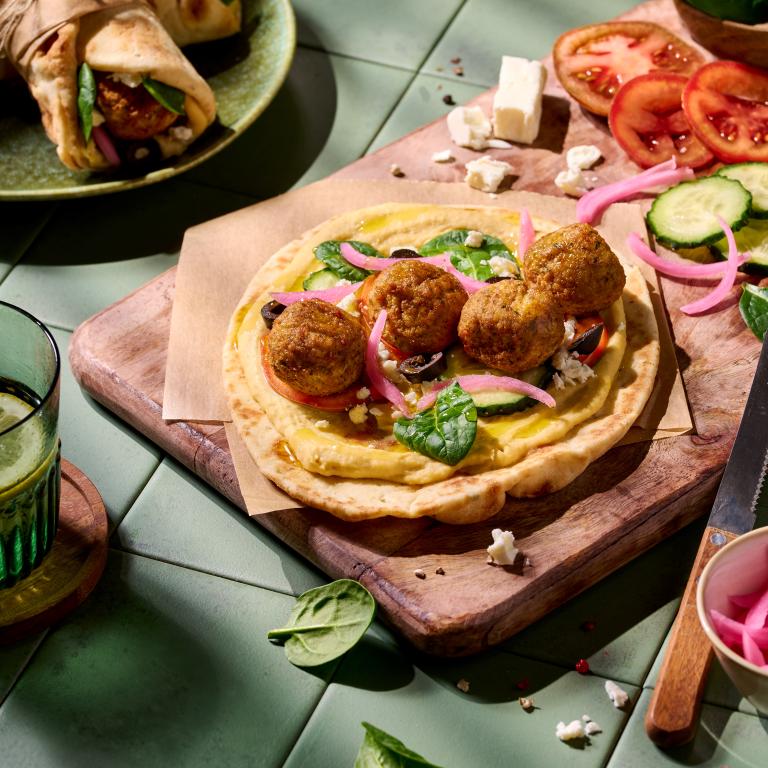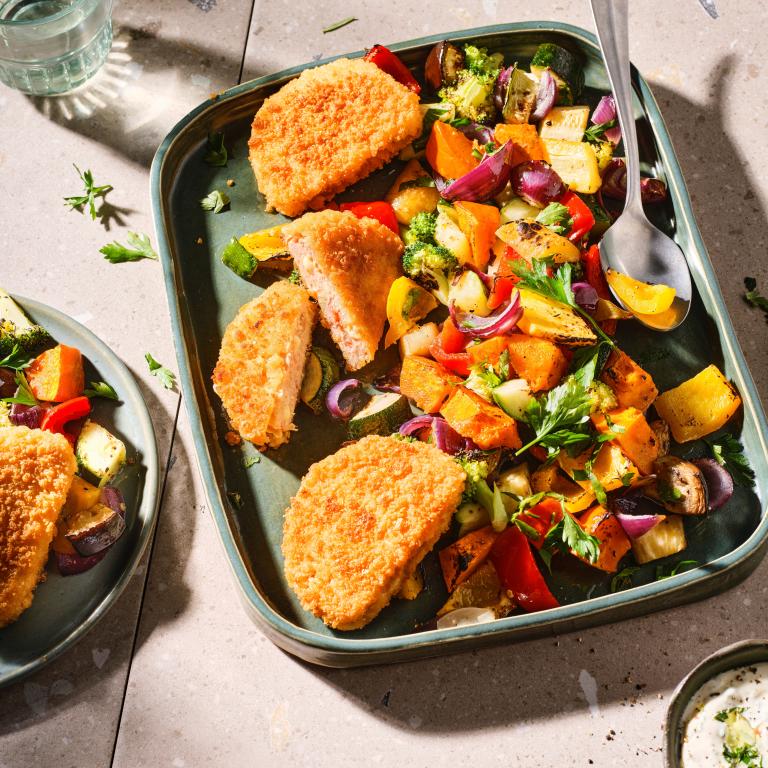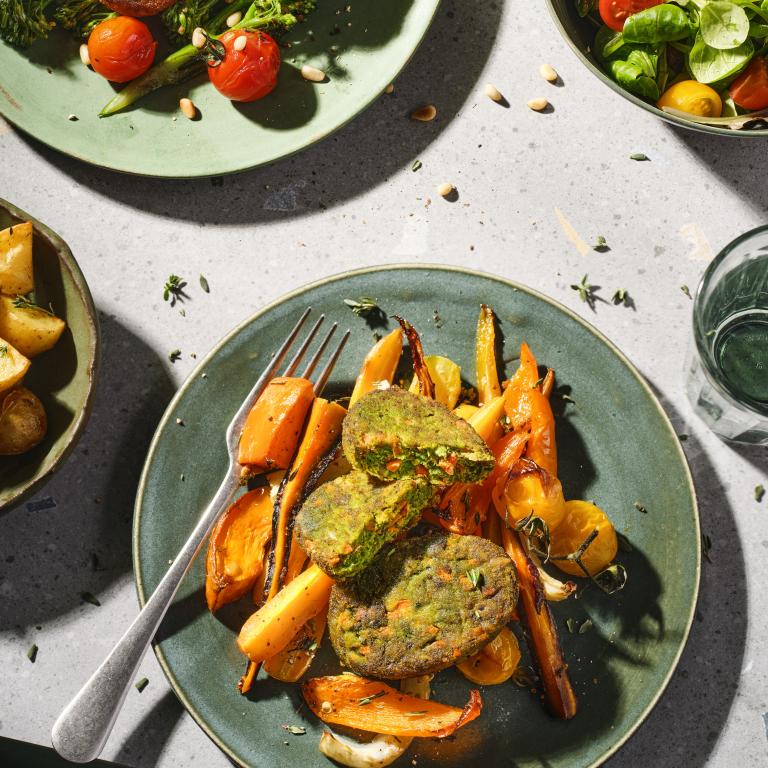From vegan to flexitarians
The consumption of plant-based food is booming. A large amount of people has changed their relationship with food in a positive way: It is estimated that a whopping 50% of Europeans have actively reduced their meat consumption[1]. That means there’s more interest in fruit, vegetables, pulses, nuts and plant-based alternatives in general and it also means you’re very likely to know people who are into these lifestyles. Here’s a quick guide to get to the ins and outs on that, Whatevertarian you’re having at your table.
Vegans
A vegan diet is made up solely of plant-based foods such as fruits, nuts, legumes, seeds, etc. Vegans leave out eggs, dairy products, fish and meat from their diets and most people on a vegan diet will also adopt a vegan lifestyle where they avoid all forms of animal exploitation. There are obvious products such as leather shoes or woolen clothes, but also less obvious products like honey that vegans will stay away from.
Vegetarians
A vegetarian diet does allow for foods of animal origin like dairy products (lacto-vegetarian) or eggs (ovo-vegetarian). Vegetarians avoid meat and seafood, although the pescatarian will still eat fish now and then. Most vegetarians will allow for both dairy and eggs in their diets, making the ovo-lacto-vegetarian diet the most common.
Flexitarians
Then, there’s the flexitarians: the ever-growing group of people who are interested in adopting a more plant-based lifestyle but take a flexible approach on their meat and fish consumption, are the flexitarians. (Hence, the flex in flexitarian). Flexitarians mainly eat a vegetarian diet, but still occasionally eat meat or fish.
At Garden Gourmet, we welcome all the -tarians at our table: whether you are a vegetarian, flexitarian, spicy-tarian or BBQ-tarian, we have something delicious for you!” Just take a look at our recipes below to get that the inspiration you’re looking for.
[1] https://www.livekindly.co/half-european-consumers-consciously-cutting-out-meat/

